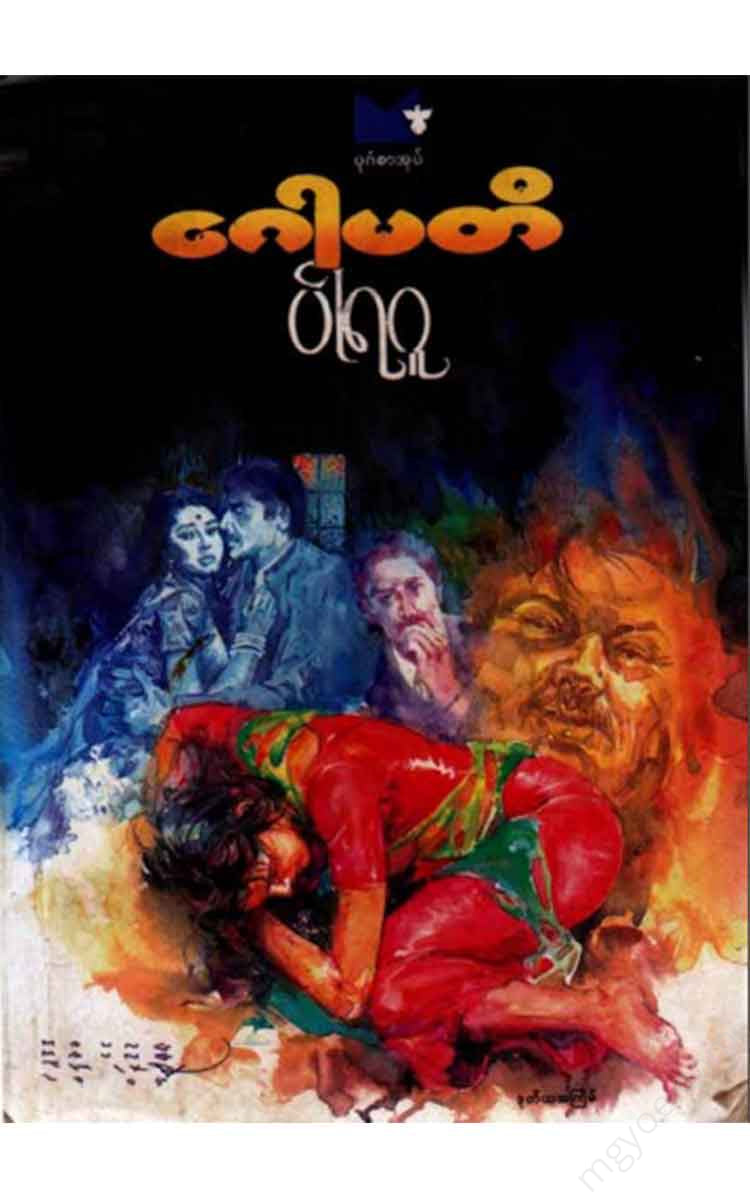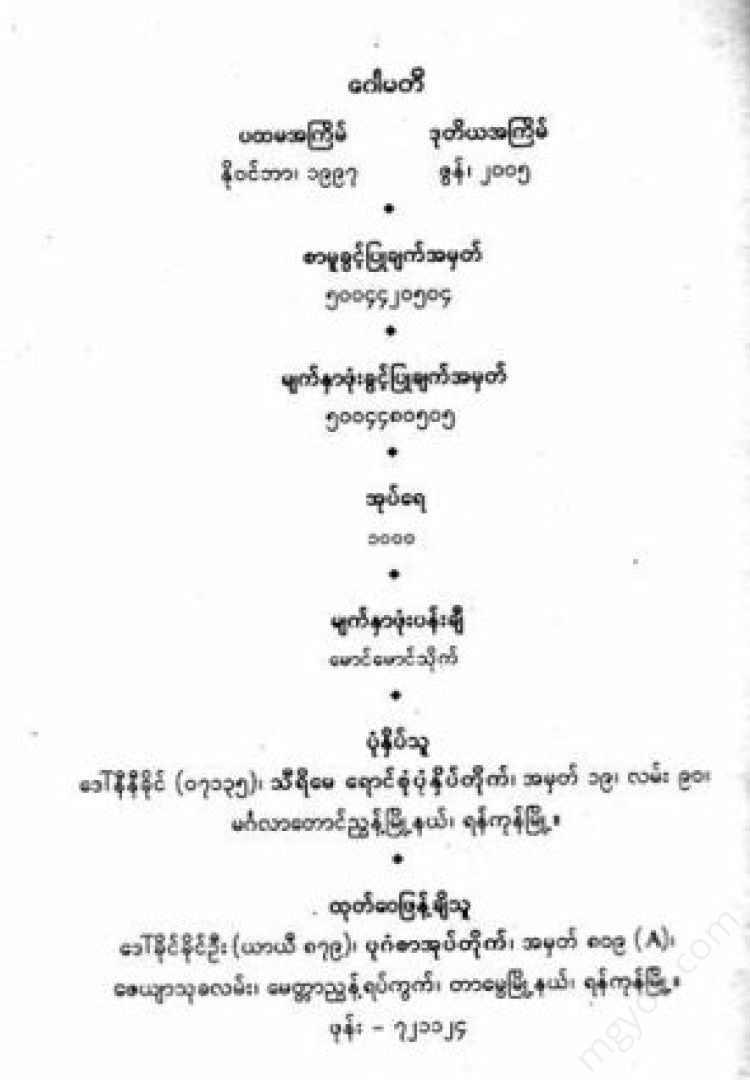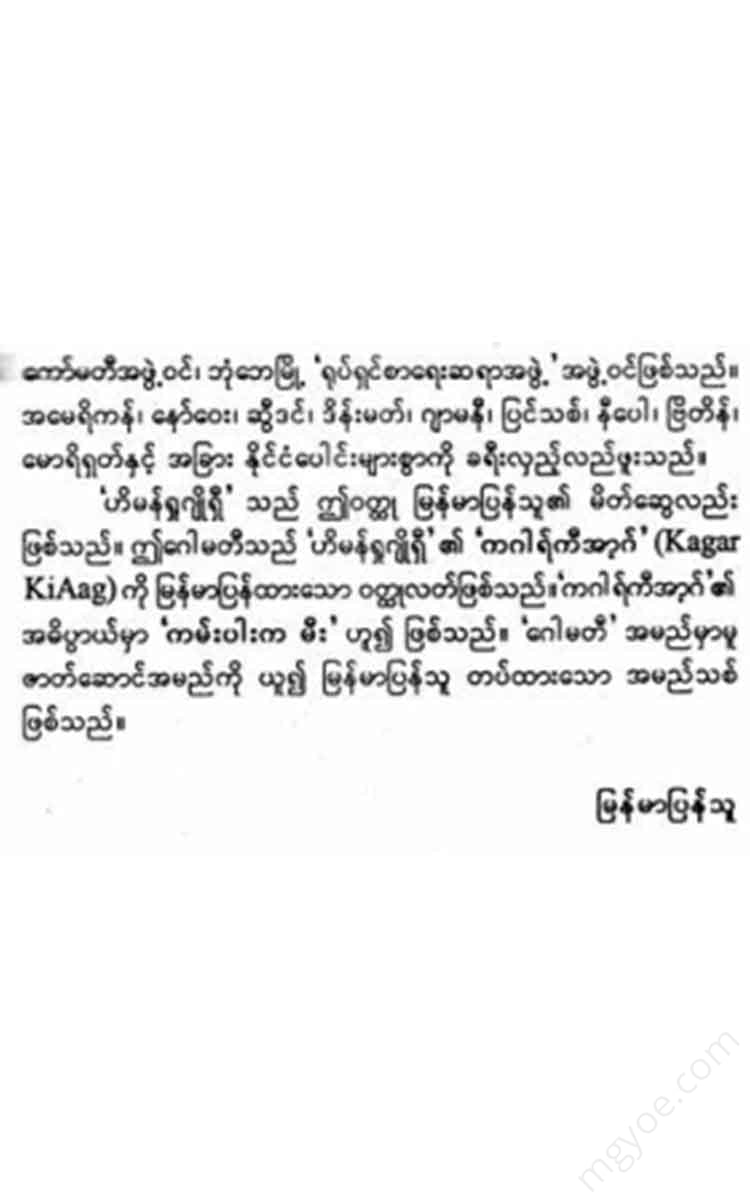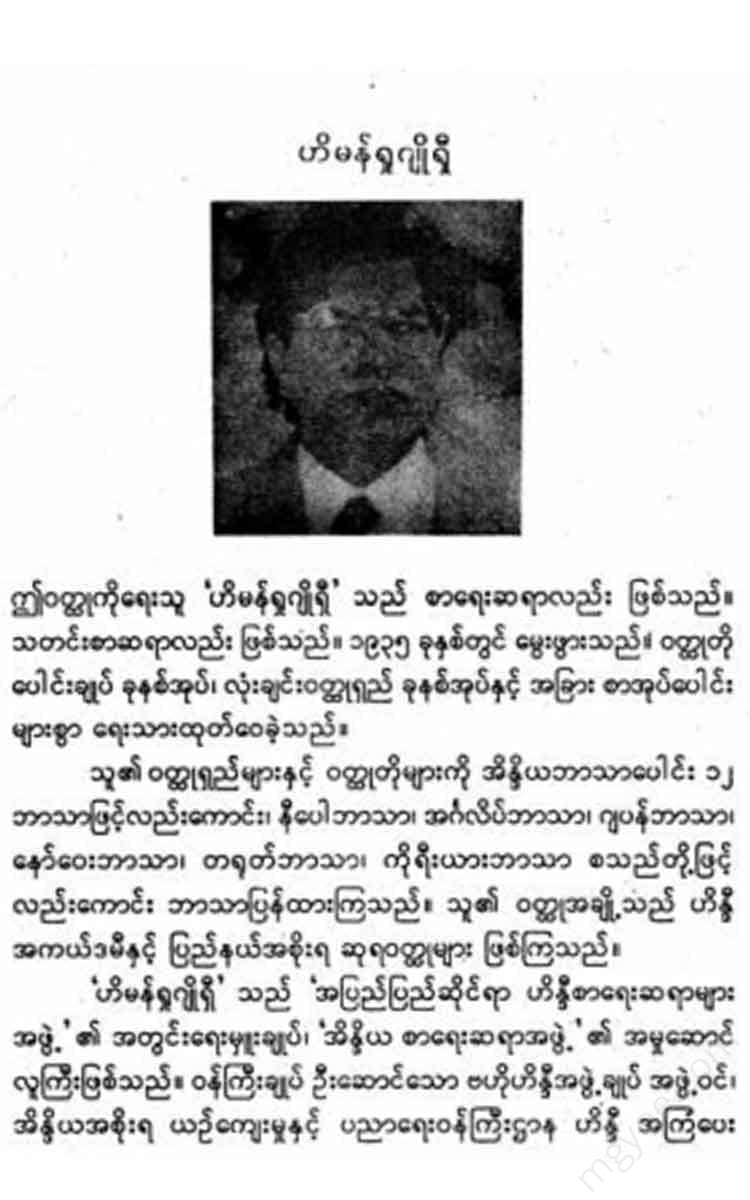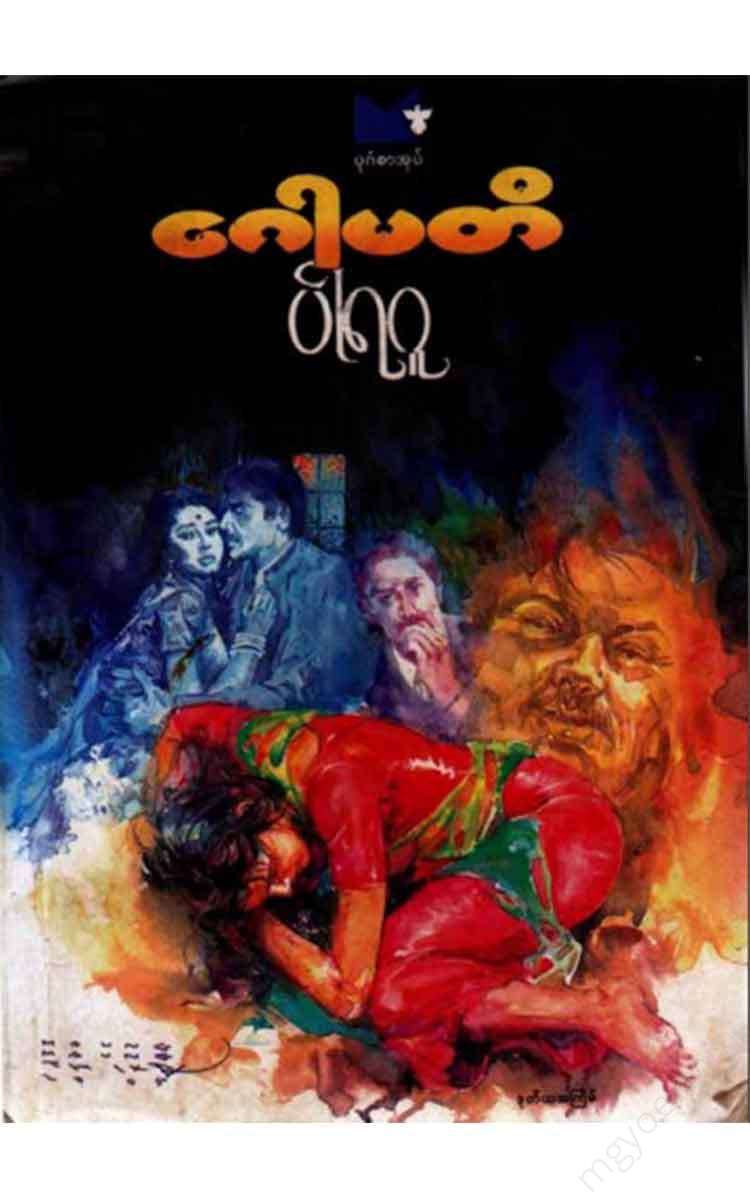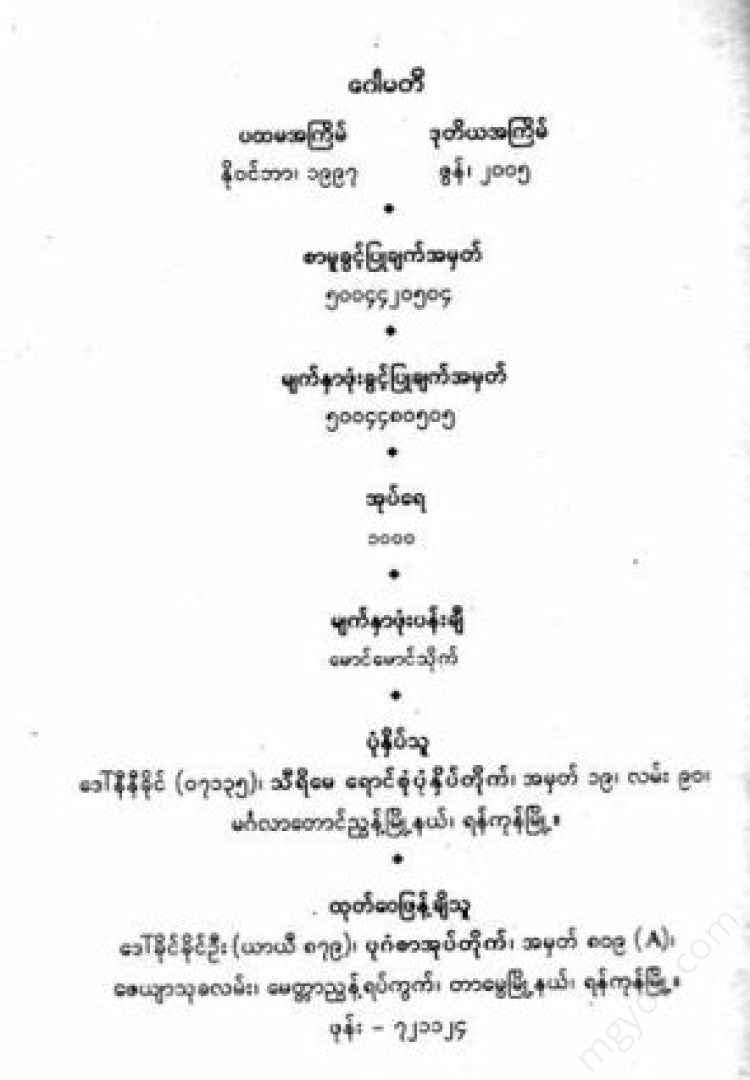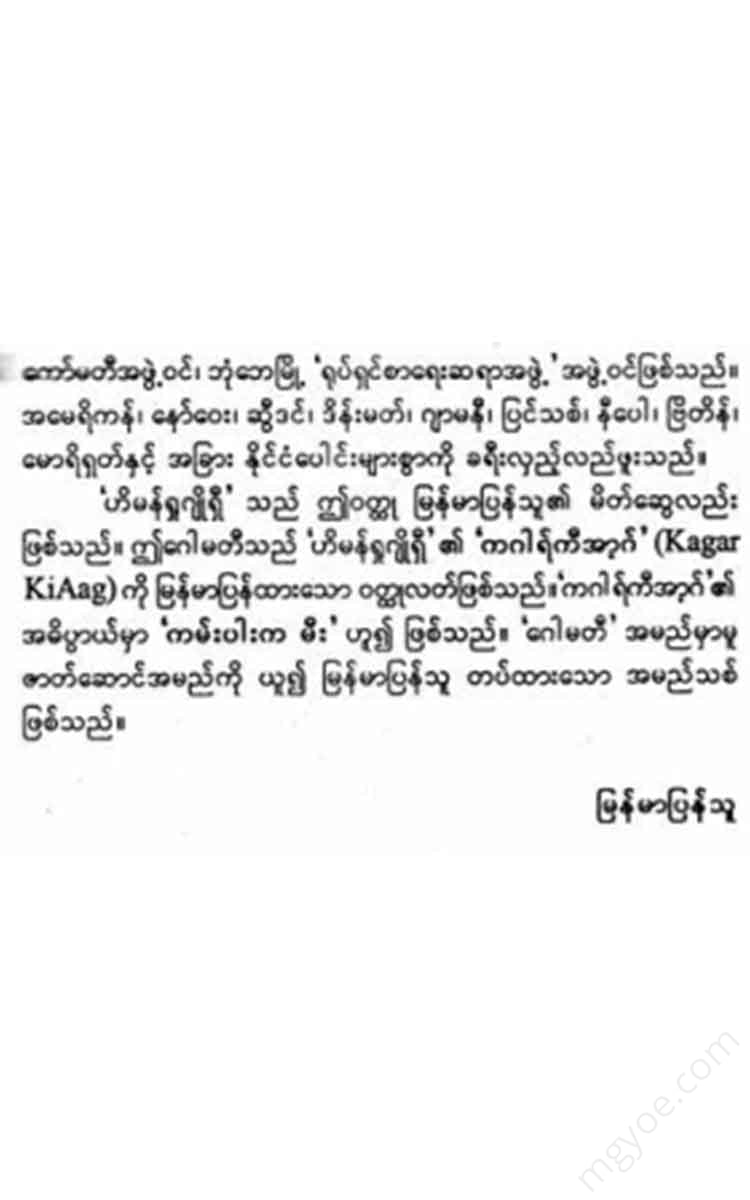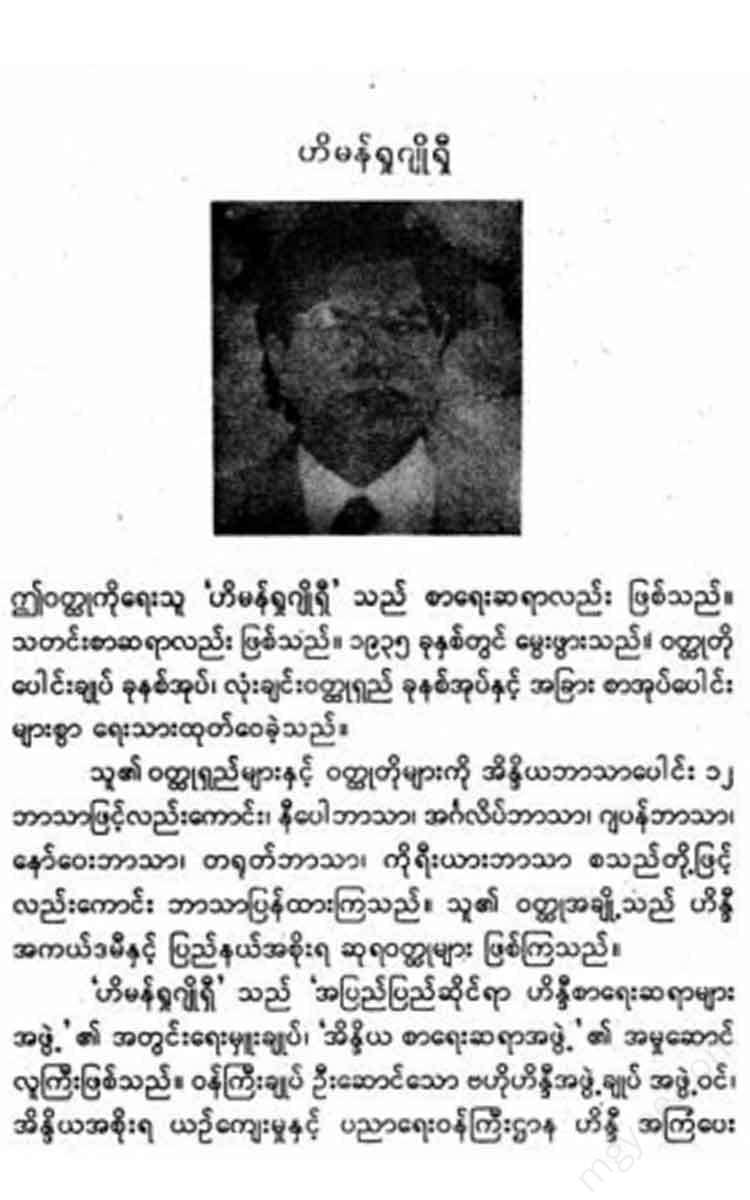Other Websites
Expert - Gopati
Expert - Gopati
Couldn't load pickup availability
The beginning of the story
This novel is about a village. You can call the village by any name you want. You can also call the characters by any name you want. By calling them however you want, by casting them however you want, there will be no difference.
This novel is the story of the lives of outcasts who are cursed.
In fact, these individuals are the embodiment of suffering. The image, the image, of a life of marginalization, of oppression. The living embodiment of a life of oppression, of oppression. Gomati, Pirama, Uncle Dhimu, all these images are paintings of oppression, black and white lines drawn with the brush of time.
The old man, U Lay Ai Mu, is still alive today as a witness to this story of suffering. U Lay Di pointed to a small piece of land about one square meter in size, and told the story.
"Here, there was their little hut. There were two brothers living in the hut. The older brother's name was Pirama. The younger brother's name was..."
Having said that, Uncle Dhimu looked up into the void with an unknown look.
The land is covered in tall grass and thorny bushes. A tree is leaning over the earthen wall and looking down at the land.
Even today, we still see furnaces. Cold iron is hot. Cold iron is pounded on hot iron. The children of the womb are born, and they are born.
It is said that a shadow, resembling a human figure, often appears in the darkness in the distance. Whenever it is seen, the people around it stand up and close their doors and huddle together.
I am not writing the true story of Gomati. If I did, people would not believe it. Therefore, his life of endless torture is described in some places in a vague and exaggerated manner.
It is true that I have committed a sin. I did this because I was afraid that this would be misunderstood as a true story or a fabrication.
Where is Gomati now? What happened to Kundu?
I don't know myself. It's true that I went to the village where Gomati once lived a few days ago. Her mother, her grandmother, had recently passed away. When I asked the villagers about Gomati, they didn't know anything.
Those people, who had studied the Sha, pointed fingers at me, asking why they were making their village's affairs public, why they were writing about it in the newspaper, and why they were trying to tarnish Gomati's character.
Where could I have committed the sin of tarnishing Gomti's morals? Gomti is a higher rank than any loyal royal wife.
When I published this story in the weekly “Saputra Hindoostan”, I received many letters from readers. What is it about this simple story of a village that makes readers so moved? I still don't understand. This is the second surprise for me after “Chayamachunaman”.
I consider myself very lucky to know that this novel is enjoyed by both the general readership and the educated class. For me, receiving unconditional love and affection from readers is a source of pride for any writer.
I do not consider literature as a mere entertainment. I embrace literature as a ' mission ' . I strive to give voice to the silence and power that surrounds countless oppressed people. How can my pain be separated from theirs? In fact, through their "medium", I strive to put my pain, my suffering into words.
If this life can make the reader think even a little about their pain or suffering, then my efforts will not be met with complete failure.
Himanshu Joshi
A similar incident has happened before.
He had come alone two or three times at night, without a companion. On those occasions, his mother had asked him with the same trepidation as she did now.
"Gommu, why did you come here alone, without a companion?"
The old mother's dry lips parted. Gomati looked at her mother's face, which was covered in wrinkles and withered.
"Who would send someone as unfortunate as you? Not even the King of Death would send you away."
Covering her face with her hands, rough as oak bark, Gomati sobbed like a child. The mother listened to her daughter.
"For a woman, her husband's house is her own. She should stay in her own house no matter what the circumstances. She should stay in the same place every day. She should endure all the difficulties she encounters and live patiently." "How long should she endure?"
He turned over his shirt, which was torn and dirty to pieces.
“Look here, why didn’t you bury your mother and daughter in the ground from birth? If you had buried them in the ground, they wouldn’t have suffered like this.”
The mother was overcome with emotion as she saw the dark marks on her daughter's delicate, flower-like body. She wiped away her tears with the side of her hand that was still wet.
"I don't know what fate brought me here. What monsters were I tortured by? I think they'll tear me apart and eat me."
The mother again tried to persuade her daughter by giving various examples. But this time, Gomati was more intolerant than before. Even in front of her husband, her father-in-law and her brother beat her with a large stick made of thorn branches. Her mother-in-law and her sister scolded her by pulling her hair.
"I don't know which houses these bastards came from, eating rice and meat. Godali said. I was walking in the forest yesterday with the forest ranger Patraul. I don't know what they were whispering to the veterinarian. They are smearing our faces with black pot. Do you have to drag them like that?"
Gomati was being beaten with sticks and fists. If the village headman Ram had not arrived, they would have all joined forces and destroyed him forever. The village headman intervened and saved Matati's life.
Pirama, who was sitting on his haunches, did not say a word. Seeing his mother being beaten, Kunu leaned against the wall. He was so scared that he did not even dare to cry.
In a corner of the narrow, narrow alley, Gomati was crying, holding her nameless little son in her arms. Nearby, Pirama had been coughing all night.
Who would Gomati tell? Who would listen to her explanation that she was going to the vet to ask for medicine for her husband? Apart from asking for medicine, she had no contact with the vet at all.
It had been a week since Patraul had been seen in the forest. He had been mowing grass in the forest with a woman from the forest. He had returned home with that woman. Where had Godali met him? When had he met him? Godali had shamelessly asked Patraul for a drink.
